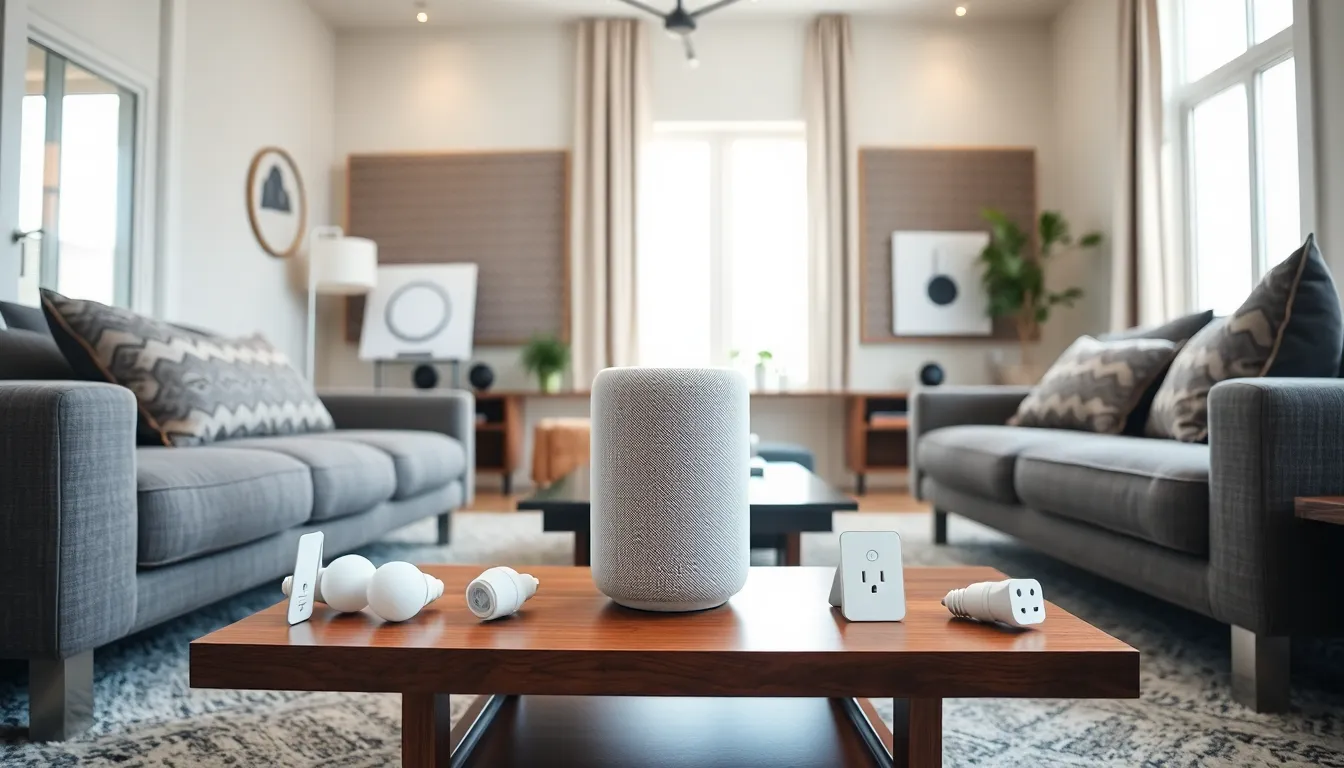Choosing between renting and buying a house feels a bit like deciding whether to adopt a kitten or get that exotic parrot you’ve been eyeing. Each option has its charm, quirks, and, let’s be honest, its own set of hilarious headaches. In this guide, we’ll break down the essential factors to help you determine whether renting is your best bet or if it’s time to take the plunge into homeownership. So, grab a snack and let’s jump into this riveting debate.
Table of Contents
ToggleUnderstanding the Basics of Renting and Buying

Renting involves paying a landlord for the use of a property while buying means investing in your own piece of real estate. When someone decides to rent, they typically sign a lease agreement that outlines the terms of the rental. Alternatively, buyers often secure a mortgage and go through a legal process, including inspections and closing costs. This fundamental difference sets the stage for many other considerations down the road.
Pros and Cons of Renting a Home
Pros of Renting
- Flexibility: Renting allows individuals to move easily, making it an excellent choice for those who may need to relocate for work or personal reasons.
- Less Financial Responsibility: Often, renters aren’t held accountable for maintenance costs, property taxes, and other long-term expenses.
- No Market Risks: Renters enjoy a shield from fluctuating property values. If the market crashes, they won’t feel the financial impact immediately.
Cons of Renting
- No Equity Building: Renters miss out on the opportunity to build equity, unlike homeowners who see their property value grow over time.
- Limited Control: Renters typically can’t renovate or make significant changes to their living space. It can feel a bit like living in someone else’s nostalgic time capsule.
- Rent Increases: Each year, tenants might face rent increases, which can lead to the stressful search for more affordable options.
Advantages of Buying a House
Building Equity
Homebuyers gain the advantage of equity as property values rise over time. This can significantly contribute to future wealth.
Customization and Control
Owning a home grants freedom to make changes, be it painting walls purple or transforming that spare room into a mini-gym. The home is truly theirs to personalize.
Stability of Payments
Fixed-rate mortgages offer predictable monthly payments, unlike renting where costs can increase at the landlord’s whim. This stability can help in long-term financial planning.
Financial Considerations in Renting Vs Buying
Upfront Costs
Renters typically pay a security deposit and first month’s rent, which is much less than a home buyer’s down payment, closing costs, and other fees.
Monthly Payments
Rent can fluctuate, while a mortgage can be more consistent if a fixed-rate loan is chosen. Owners can build equity through their monthly payments, contributing to their overall financial health.
Tax Advantages
Homeowners might benefit from tax deductions on mortgage interest and property taxes, making homeownership more financially appealing.
Long-Term Investment and Market Trends
Investing in property can be a solid long-term strategy. Historically, real estate values appreciate over time, making homeownership a potentially profitable venture. Market trends fluctuate, but. For instance, urban areas may see rapid increases in property value due to demand, while rural regions may not. Understanding your local market and the broader economic landscape is crucial for making the best investment.
Personal and Lifestyle Factors to Consider
Lifestyle plays a pivotal role in the renting versus buying discussion. If individuals enjoy the flexibility of moving and a low-maintenance lifestyle, renting may be ideal. Conversely, those ready to settle down, start a family, or invest some sweat equity into their living space may find buying more appealing. One must weigh career plans, family size, and personal values when making this decision.
Making the Decision: Renting or Buying?
In the end, the choice between renting and buying depends on individual financial situations, lifestyle preferences, and long-term goals. He or she should assess their readiness to commit to the financial responsibilities that come with buying a home versus the flexibility and less maintenance associated with renting. Ideally, making an well-informed choice will enhance personal satisfaction and financial security.







